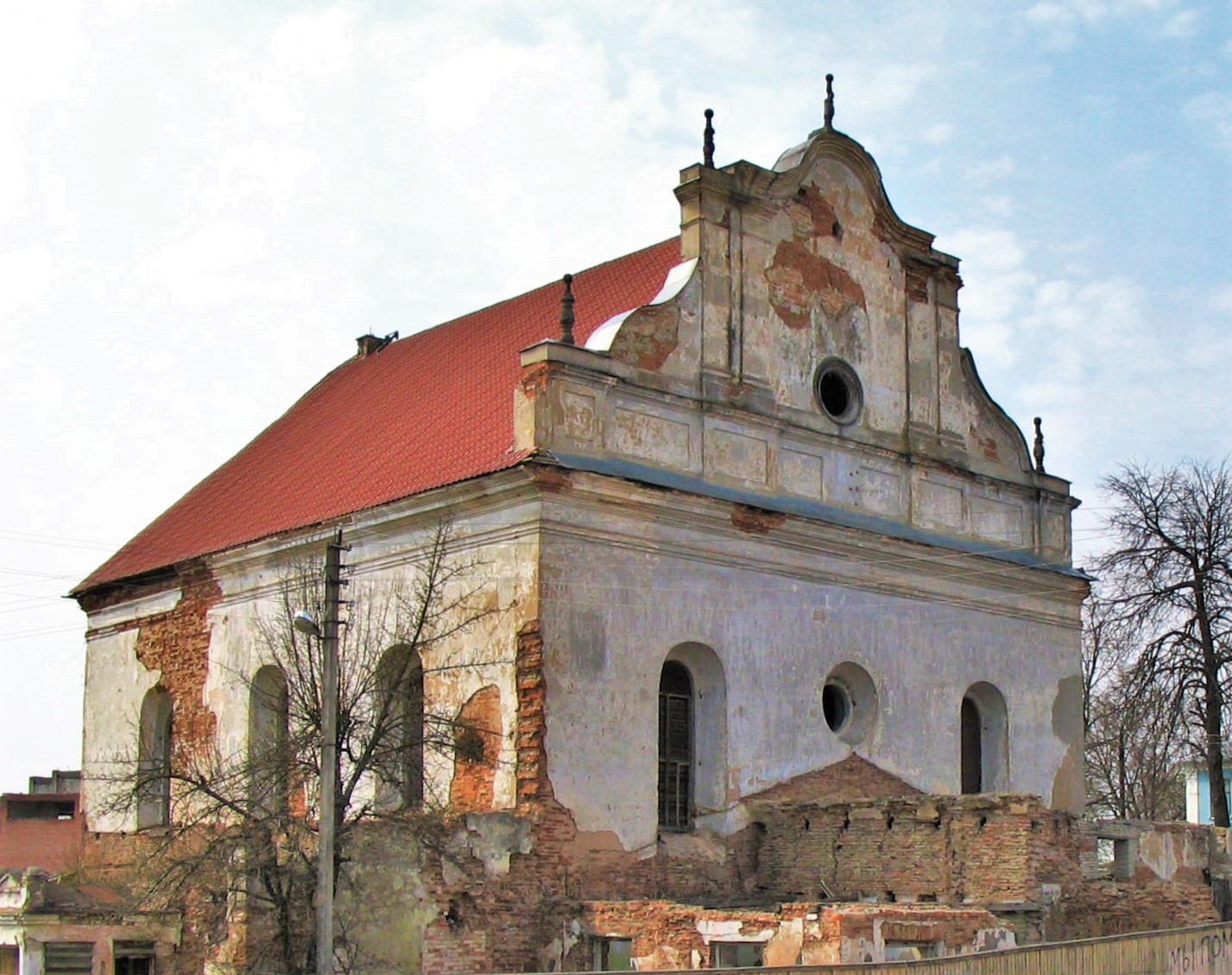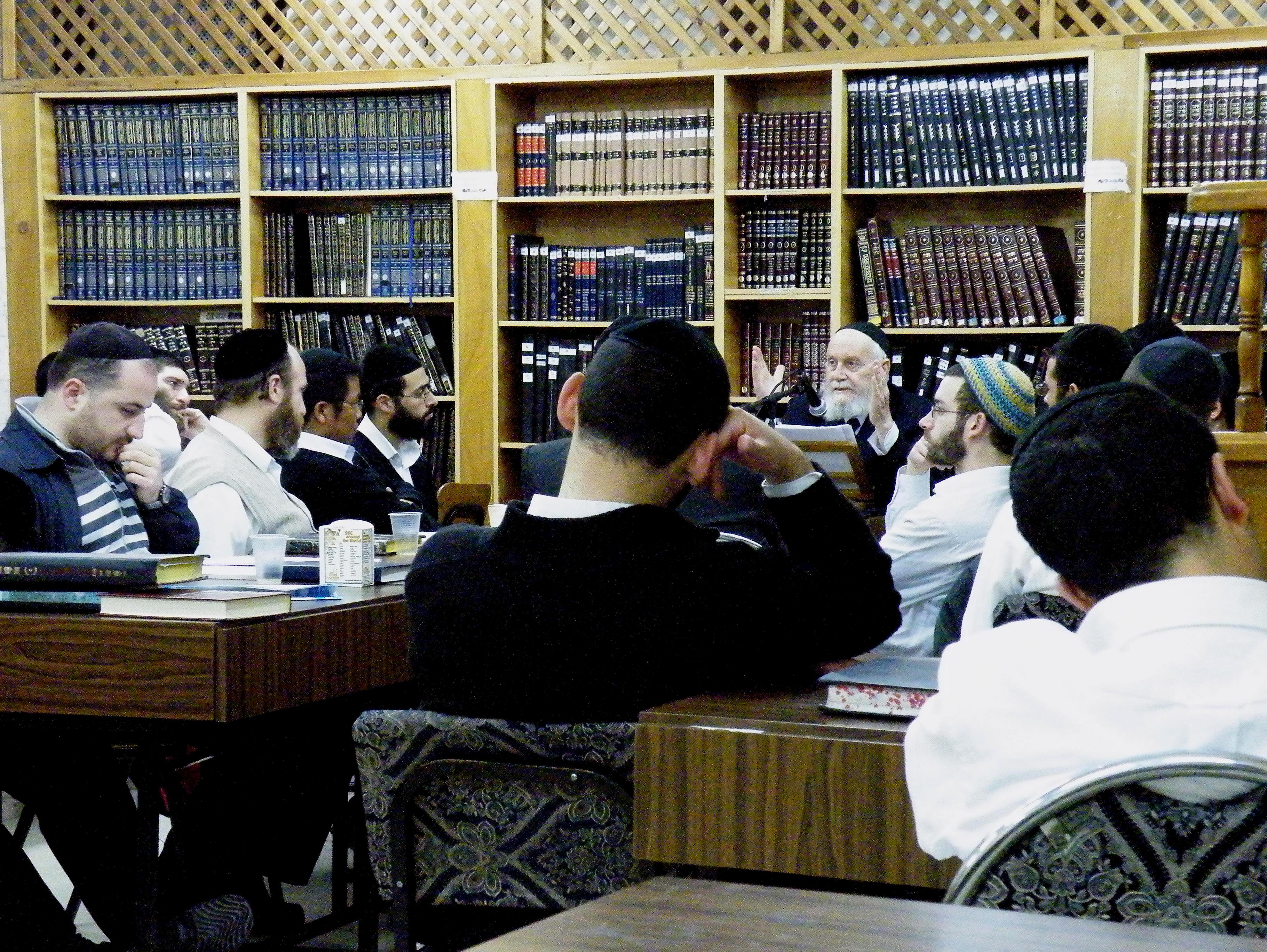|
Yechiel Fishel Eisenbach
Yechiel Fishel Eisenbach (1925 – 4 September 2008) was a Haredi rabbi and long-time rosh yeshiva of Shaar Hashamayim Yeshiva in Jerusalem. He was widely regarded as one of the greatest kabbalists in Israel, and was an expert in the writings of the Arizal and the ''siddur'' of the Rashash."HaRav Yechiel Fishel Eisenbach". ''Hamodia'', Israel News, September 11, 2008, p. A23. Early life He was born in Jerusalem to Rabbi Yosef Eisenbach, a ''sofer'' (scribe), and studied in the Talmud Torah and yeshiva of Shomrei HaChomot. He was also one of the first students of Yeshivat Beit Avraham-Slonim, which was then led by Rabbi Sholom Noach Berezovsky, the Rebbe of Slonim. After his marriage in 1944 to the daughter of Rabbi Asher Zelig Margolios, a noted kabbalist, Rabbi Eisenbach studied at the Pressburg Yeshiva under Rabbi Akiva Sofer (the Daas Sofer); the Toras Emes (Chabad) yeshiva; and Kollel Shomrei HaChomot. He was well known for his 18-hour day of learning, as well as ... [...More Info...] [...Related Items...] OR: [Wikipedia] [Google] [Baidu] |
Shaar Hashamayim Yeshiva
Shaar Hashamayim Yeshiva ( he, ישיבת שער השמים, lit., "Gate of Heaven") is an Ashkenazi Jews, Ashkenazi yeshiva in Jerusalem dedicated to the study of the kabbalah, kabbalistic teachings of the Rabbi Isaac Luria, Arizal (Rabbi Isaac Luria). It is famous for its student body of advanced kabbalists — many of them rosh yeshiva, roshei yeshiva and Torah scholars — as well as beginning and intermediate scholars who study both the revealed and concealed Torah. Name The name of the yeshiva was taken from the Torah passage in which Jacob dreams of a Jacob's ladder, ladder stretching from earth to heaven. After he awakens from his dream, Jacob exclaims, "This is none other than the House of God, and this is the Gate of Heaven (''Shaar Hashamayim'')!" (Book of Genesis, Genesis 28:19). Origins The impetus to found Shaar Hashamayim Yeshiva came from a dream experienced by two noteworthy Jerusalem rabbis on the same night in 1906. Rabbi Chaim Yehuda Leib Auerbach, auth ... [...More Info...] [...Related Items...] OR: [Wikipedia] [Google] [Baidu] |
Slonim (Hasidic Dynasty)
Slonim is a Hasidic dynasty originating in the town of Slonim, which is now in Belarus. Today, there are two Slonimer factions. Slonim, based in Jerusalem, and the Slanim community in Bnei Brak. They are two distinct groups today, and have many differences between them. The first Rebbe of Slonim, Rabbi Avraham Weinberg (1804–1883), was the author of ''Yesod HaAvodah''. In 1873, he sent a group of his grandchildren and other Hasidim to settle in Ottoman Palestine; they set up their community in Tiberias. Almost all of the Slonimer Hasidim in Europe perished at the hands of the Nazis in the Holocaust. The present-day Slonimer community was rebuilt from the Slonimer Hasidim who had settled in Israel. Outline of Slonimer dynasty Spiritual legacy * Rabbi Israel Baal Shem Tov, founder of Hasidism :* Rabbi Dov Ber, the Maggid (Preacher) of Mezeritch, disciple of the Baal Shem Tov ::* Rabbi Aaron Hagodol of Karlin, disciple of the Maggid ::: Rabbi Shlomo of Karlin, disciple of t ... [...More Info...] [...Related Items...] OR: [Wikipedia] [Google] [Baidu] |
Shmuel Auerbach
Shmuel Auerbach ( he, שמואל אורבך) (September 21, 1931 – February 24, 2018) was a Haredi rabbi in Jerusalem. Rav Auerbach led a large portion of more radical elements of the non-Hasidic Haredi community. His followers formed a political party known as the Jerusalem Faction. In 2013, as the Israeli government launched a campaign to draft Ultra Orthodox men into the IDF, the Jerusalem Faction adopted a controversial policy of demonstrations and incitement against efforts to draft Haredi men into military service. Biography Rav Auerbach was the eldest son of Rabbi Shlomo Zalman Auerbach and his wife, Chaya Rivka Ruchamkin. He was born in the Jerusalem neighborhood of Sha'arei Hesed, as was his father. He married Rachel Paksher (d. 11 January 1990). They had no children. He named his musar '' sefer'' ''Ohel Rachel'' in her memory. He resided in the Sha'arei Hesed neighborhood of Jerusalem. Rabbinic career Auerbach was the rosh yeshiva of Yeshivas Maalot HaTorah an ... [...More Info...] [...Related Items...] OR: [Wikipedia] [Google] [Baidu] |
Gamliel Rabinowitz
Gamliel HaKohen Rabinowitz (Rappaport) is a rosh yeshiva of Shaar Hashamayim Yeshiva in Jerusalem, Israel. He is a recognized expert in Jewish Law and Kabbalah. Family Rabinowitz is the son of Rabbi Levi HaKohen Rabinowitz (1920-2015), author of ''Maadanei Hashulchan'' and ''Maadanei Malakhim'', and grandson of Rabbi Gamliel Rabinowitz, a rosh yeshiva in Kishinev and posek in the court of the Chortkover Rebbe, Rabbi Dovid Moshe Friedman."Harav Levi Rabinovitch, ''zt"l''". ''Hamodia'' Israel News, February 26, 2015, p. 15. His family possesses rare documentation attesting to their status as Kohanim, tracing their ancestry back to the Shach. The family surname was originally Rappaport; the name was changed in response to a Russian government decree that conscripted all second sons for the Imperial Russian Army. Personal He resides in the Zikhron Moshe neighborhood of Jerusalem. Published works * * * - Commentary on the kavanah of saying Shema Yisroel. * * - Commentary on Pu ... [...More Info...] [...Related Items...] OR: [Wikipedia] [Google] [Baidu] |
Jewish Services
Jewish prayer ( he, תְּפִלָּה, ; plural ; yi, תּפֿלה, tfile , plural ; Yinglish: davening from Yiddish 'pray') is the prayer recitation that forms part of the observance of Rabbinic Judaism. These prayers, often with instructions and commentary, are found in the ''Siddur'', the traditional Jewish prayer book. Prayer, as a "service of the heart", is in principle a Torah-based commandment. It is not time-dependent and is mandatory for both Jewish men and women. However, the rabbinic requirement to recite a specific prayer text does differentiate between men and women: Jewish men are obligated to recite three prayers each day within specific time ranges (''zmanim''), while, according to many approaches, women are only required to pray once or twice a day, and may not be required to recite a specific text. Traditionally, three prayer services are recited daily: * Morning prayer: ''Shacharit'' or ''Shaharit'' (, "of the dawn") * Afternoon prayer: ''Mincha' ... [...More Info...] [...Related Items...] OR: [Wikipedia] [Google] [Baidu] |
Aharon Slotkin
Aharon אַהֲרֹן is masculine given name alternate spelling, commonly in Israel, of ''Aaron'', prominent biblical figure in the Old Testament, "Of the Mountains", or "Mountaineer". There are other variants including "Ahron" and "Aron". Aharon is also occasionally a patronymic surname, usually with the hyphenated prefix "Ben-". People with the name include: Given name * Aharon Abuhatzira (1938–2021), Israeli politician * Aharon Amar (born 1937), Israeli footballer * Aharon Amir (1923–2008), Israeli poet, translator, and writer * Aharon Amram (born 1939), Israeli singer, composer, poet, and researcher * Aharon Appelfeld (1932–2018), Israeli novelist and Holocaust survivor * Aharon April (1932–2020), Russian artist * Aharon Barak (born 1936), Israeli lawyer and jurist * Aharon Becker (1905–1995), Israeli politician * Aharon Ben-Shemesh (1889–1988), Israeli writer, translator, and lecturer * Aharon Chelouche (1840–1920), Algerian landowner, jeweler, and moneychange ... [...More Info...] [...Related Items...] OR: [Wikipedia] [Google] [Baidu] |
Mashgiach Ruchani
A mashgiach ruchani ( he, משגיח רוחני; pl., ''mashgichim ruchani'im'') or mashgicha ruchani – sometimes mashgiach/mashgicha for short – is a spiritual supervisor or guide. He or she is usually a rabbi who has an official position within a yeshiva and is responsible for the non-academic areas of yeshiva students' lives.''HaRav Schach: Conversations: Stories to Inspire the Yeshiva World''. Elʻazar Menaḥem Man Shakh - 2004 p52: "Speaking about the position of Mashgiach Ruchani (Spiritual Supervisor) in a yeshiva, Rav Schach used to say that while it goes without saying that the Mashgiach must be a God-fearing man, and a person capable of inspiring others with his ..." The position of mashgiach/mashgicha ruchani arose with the establishment of the modern "Lithuanian Jews, Lithuanian-style" Mussar movement, mussar yeshivas. The prototype of this new type of rabbinical leader and educator was Rabbi Nosson Tzvi Finkel (Slabodka), Nosson Tzvi Finkel (1849-1927) known as th ... [...More Info...] [...Related Items...] OR: [Wikipedia] [Google] [Baidu] |
Shiur (Torah)
Shiur (, , lit. ''amount'', pl. shiurim ) is a lecture on any Torah topic, such as Gemara, Mishnah, Halakha (Jewish law), Tanakh (Bible), etc. History The Hebrew term שיעור ("designated amount") came to refer to a portion of Judaic text arranged for study on a particular occasion, such as a yartzeit, the dedication of a new home, or the evening of a holiday, and then to a public reading and explanation of the same. The act of teaching and studying these texts at the designated time was known in Yiddish as ''schiur lernen''. These shiurim would be attended by all classes of people; it was traditional for learned attendees to engage the lecturer in continuous discussion, and for the larger lay audience to listen intently. Concurrently, the word came to refer to the daily study quotient for students of a yeshiva, and then to the lecture given thereon. Akiva Eger, for example,would not miss learning a single ''shiur'' with the yeshiva. His ''shiurim'' with them were ... [...More Info...] [...Related Items...] OR: [Wikipedia] [Google] [Baidu] |
Chabad
Chabad, also known as Lubavitch, Habad and Chabad-Lubavitch (), is an Orthodox Jewish Hasidic dynasty. Chabad is one of the world's best-known Hasidic movements, particularly for its outreach activities. It is one of the largest Hasidic groups and Jewish religious organizations in the world. Unlike most Haredi groups, which are self-segregating, Chabad operates mainly in the wider world and caters to secularized Jews. Founded in 1775 by Rabbi Schneur Zalman of Liadi, the name "Chabad" () is an acronym formed from three Hebrew words— (the first three sephirot of the kabbalistic Tree of Life) (): "Wisdom, Understanding, and Knowledge"—which represent the intellectual and kabbalistic underpinnings of the movement. The name Lubavitch derives from the town in which the now-dominant line of leaders resided from 1813 to 1915. Other, non-Lubavitch scions of Chabad either disappeared or merged into the Lubavitch line. In the 1930s, the sixth Rebbe of Chabad, Rabbi Yosef Yitzcha ... [...More Info...] [...Related Items...] OR: [Wikipedia] [Google] [Baidu] |


.jpg)

